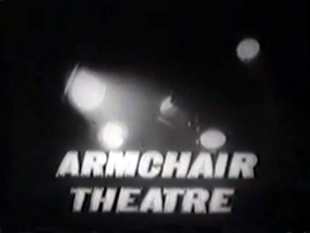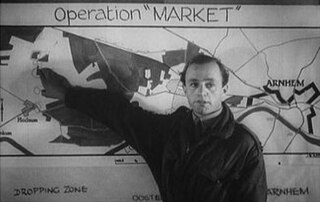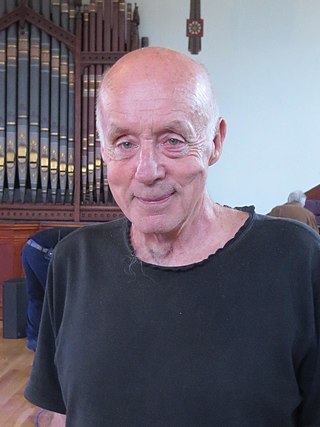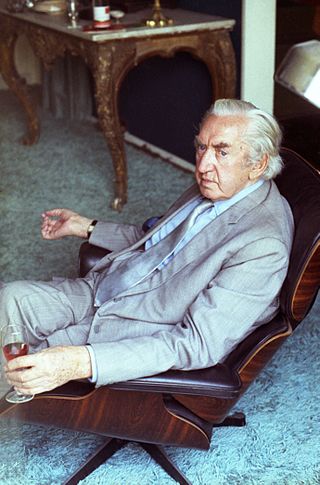Related Research Articles

Frederick George Peter Ingle Finch was an English-Australian actor of theatre, film and radio.

John Richard Schlesinger was an English film and stage director, and actor. He emerged in the early 1960s as a leading light of the British New Wave, before embarking on a successful career in Hollywood, often directing films dealing frankly in provocative subject matter, combined with his status as one of the only openly-gay directors working in mainstream films.

Glory is a 1989 American historical war drama film directed by Edward Zwick about the 54th Massachusetts Infantry Regiment, one of the Union Army's earliest African-American regiments in the American Civil War. It stars Matthew Broderick as Colonel Robert Gould Shaw, the regiment's commanding officer, and Denzel Washington, Cary Elwes, and Morgan Freeman as fictional members of the 54th. The screenplay by Kevin Jarre was based on the books Lay This Laurel (1973) by Lincoln Kirstein and One Gallant Rush (1965) by Peter Burchard and the personal letters of Shaw. The film depicts the soldiers of the 54th from the formation of their regiment to their heroic actions at the Second Battle of Fort Wagner.
Troy Kennedy Martin was a Scottish-born film and television screenwriter. He created the long-running BBC TV police series Z-Cars (1962–1978), and the award-winning 1985 anti-nuclear drama Edge of Darkness. He also wrote the screenplay for the original version of The Italian Job (1969). His last film was Ferrari (2023), which was posthumously released.

Rudolph Cartier was an Austrian television director, filmmaker, screenwriter and producer who worked predominantly in British television, exclusively for the BBC. He is best known for his 1950s collaborations with screenwriter Nigel Kneale, most notably the Quatermass serials and their 1954 adaptation of George Orwell's dystopian novel Nineteen Eighty-Four.

The Wednesday Play is an anthology series of British television plays which ran on BBC1 for six seasons from October 1964 to May 1970. The plays were usually original works written for television, although dramatic adaptations of fiction also featured. The series gained a reputation for presenting contemporary social dramas, and for bringing issues to the attention of a mass audience that would not otherwise have been discussed on screen.

Armchair Theatre is a British television drama anthology series of single plays that ran on the ITV network from 1956 to 1974. It was originally produced by ABC Weekend TV. Its successor Thames Television took over from mid-1968.

Harold Thomas Gregson, known professionally as John Gregson, was an English actor of stage, television and film, with 40 credited film roles. He was best known for his crime drama and comedy roles.
Philip David Charles Leacock was an English television and film director and producer. His brother was documentary filmmaker Richard Leacock.
Carmen Esme Munroe, is a British actress who was born in Berbice, British Guiana, and has been a resident of the UK since the early 1950s. Munroe made her West End stage debut in 1962 and has played an instrumental role in the development of black British theatre and representation on small screen. She has had high-profile roles on stage and television, perhaps best known from the British TV sitcom Desmond's as Shirley, wife of the eponymous barber played by Norman Beaton.

The Lion Has Wings is a 1939 British, black-and-white, documentary-style, propaganda war film that was directed by Adrian Brunel, Brian Desmond Hurst, Alexander Korda and Michael Powell. The film was produced by London Film Productions and Alexander Korda Film Productions and 'was preparing the nation [for war] and shining a light on the power of the RAF'.

Theirs Is the Glory, is a 1946 British war film about the British 1st Airborne Division's involvement in the Battle of Arnhem during Operation Market Garden in the Second World War. It was the first film to be made about this battle, and the biggest grossing UK war film for nearly a decade. The later film A Bridge Too Far depicts the operation as a whole and includes the British, Polish and American Airborne forces, while Theirs Is the Glory focuses solely on the British forces, and their fight at Oosterbeek and Arnhem.

Robert Dorning was a musician, dance band vocalist, ballet dancer and stage, film and television actor. He is known to have performed in at least 77 television and film productions between 1940 and 1988.

Karl Francis is a Welsh film and television director, producer and screenwriter, associated with left-wing political causes. His work has included output in both English and Welsh.

Brian Desmond Hurst was an Irish film director. With over thirty films in his filmography, Hurst was hailed as Northern Ireland's best film director by BBC film critic Mike Catto. He is perhaps best known for the 1951 A Christmas Carol adaptation Scrooge.

The 3rd Battalion, Parachute Regiment, is a battalion sized formation of the British Army's Parachute Regiment and is a subordinate unit within 16 Air Assault Brigade.
Euro War, also known as Macaroni Combat, Macaroni War, Spaghetti Combat, or Spaghetti War, is a broad subgenre of war film that emerged in the mid-1960s. The films were named Euro War because most were European co-productions, most notably and commonly by Italians, as indicated by the subgenre's other nicknames that draw parallels to those films within the mostly Italian Spaghetti Western genre.

Kajaki: The True Story, released in North America as Kilo Two Bravo, is a 2014 British war docu-drama film directed by Paul Katis in his feature debut, written by Tom Williams, and produced by Katis and Andrew de Lotbiniere.
John Eldridge (1917–1962) was a short-lived British film director.
References
- ↑ Hurst, Brian Desmond (4 October 1946), Theirs Is the Glory (Documentary, War), Stanley Maxted, Thomas Scullion, Allan Wood, Gainsborough Pictures, retrieved 15 March 2024
- ↑ Young, Terence (1 October 1953), The Red Beret (Drama, War), Alan Ladd, Leo Genn, Susan Stephen, Warwick Film Productions, retrieved 15 March 2024
- ↑ The Longest Day (1962) - Plot - IMDb , retrieved 15 March 2024
- ↑ Annakin, Ken; Marton, Andrew; Oswald, Gerd (4 October 1962), The Longest Day (Action, Drama, History), John Wayne, Robert Ryan, Richard Burton, Darryl F. Zanuck Productions, retrieved 15 March 2024
- ↑ Attenborough, Richard (15 June 1977), A Bridge Too Far (Drama, History, War), Sean Connery, Ryan O'Neal, Michael Caine, Joseph E. Levine Productions, retrieved 15 March 2024
- ↑ Margheriti, Antonio (20 April 1986), Kommando Leopard (Action), Lewis Collins, Klaus Kinski, Cristina Donadio, Ascot Film, Prestige Film, retrieved 15 March 2024
- ↑ Greengrass, Paul (19 April 2002), Bloody Sunday (Drama, History, War), James Nesbitt, Tim Pigott-Smith, Nicholas Farrell, Granada Television, Hell's Kitchen Films, January Films, retrieved 15 March 2024
- ↑ Meadows, Shane (1 October 2004), Dead Man's Shoes (Crime, Drama, Thriller), Paddy Considine, Gary Stretch, Toby Kebbell, Warp Films, Big Arty Productions, EM Media, retrieved 15 March 2024
- ↑ Teague, Colin (18 April 2006), The Last Drop (Action, Adventure, Drama), Laurence Fox, Louis Dempsey, Lucy Gaskell, Carnaby International, Media Pro Pictures, retrieved 15 March 2024
- ↑ Katis, Paul (13 November 2015), Kajaki (Adventure, Biography, Drama), David Elliot, Mark Stanley, Scott Kyle, Pukka Films, Head Gear Films, Metrol Technology, retrieved 15 March 2024
- ↑ The Paras , retrieved 16 March 2024
- ↑ "BFI Screenonline: Contact (1985)". www.screenonline.org.uk. Retrieved 16 March 2024.
- ↑ Civvies (Drama), Jason Isaacs, Elizabeth Rider, Caleb Lloyd, British Broadcasting Corporation (BBC), 22 September 1992, retrieved 16 March 2024
{{citation}}: CS1 maint: others (link) - ↑ Hanks, Tom (30 September 2001), Crossroads, Band of Brothers, Nicholas Aaron, Kirk Acevedo, Doug Allen, retrieved 16 March 2024
- ↑ The Paras: Men of War (Documentary), Bill Fellows, Nick French, Avanti, ITV - Independent Television, 10 January 2019, retrieved 17 March 2024
{{citation}}: CS1 maint: others (link) - ↑ "Battlefield V-some more historical hogwash..." RC Tank Warfare community hobby forum. 22 September 2020. Retrieved 17 March 2024.
- ↑ Call of Duty: Vanguard (Video Game 2021) - Goofs - IMDb , retrieved 17 March 2024